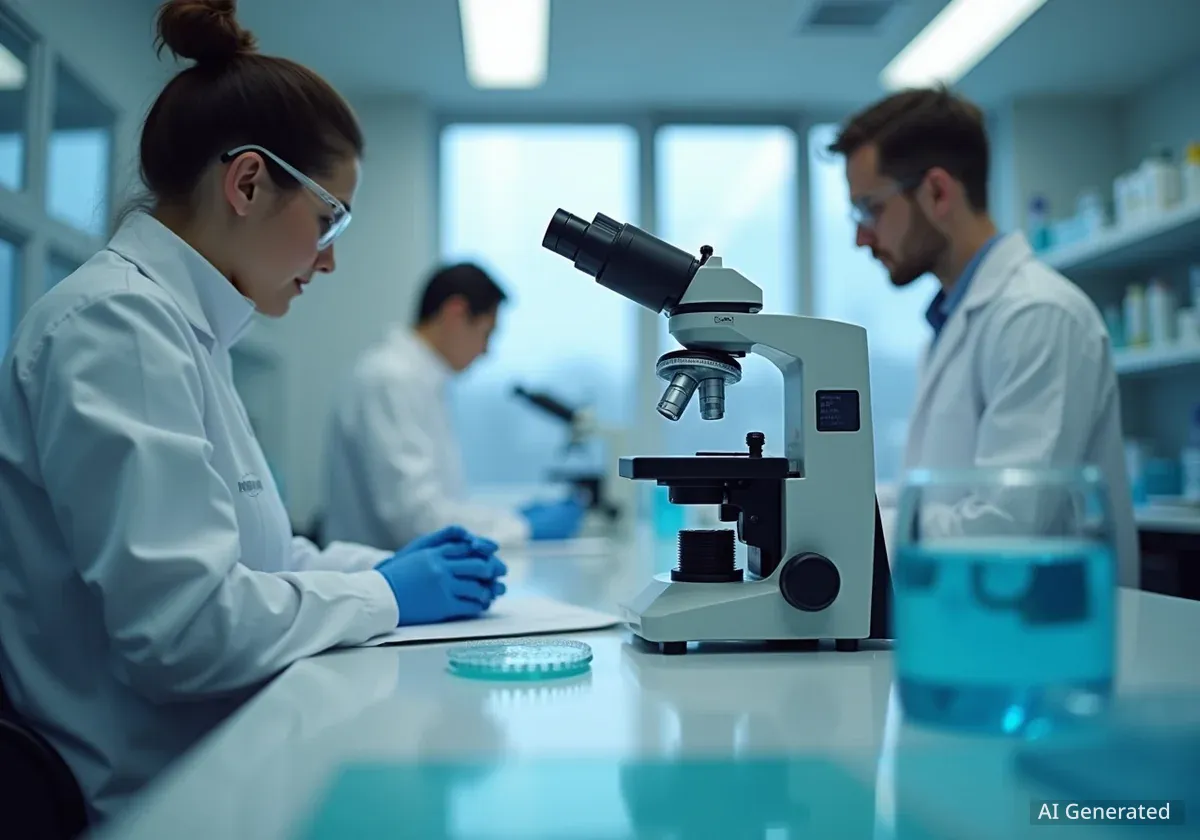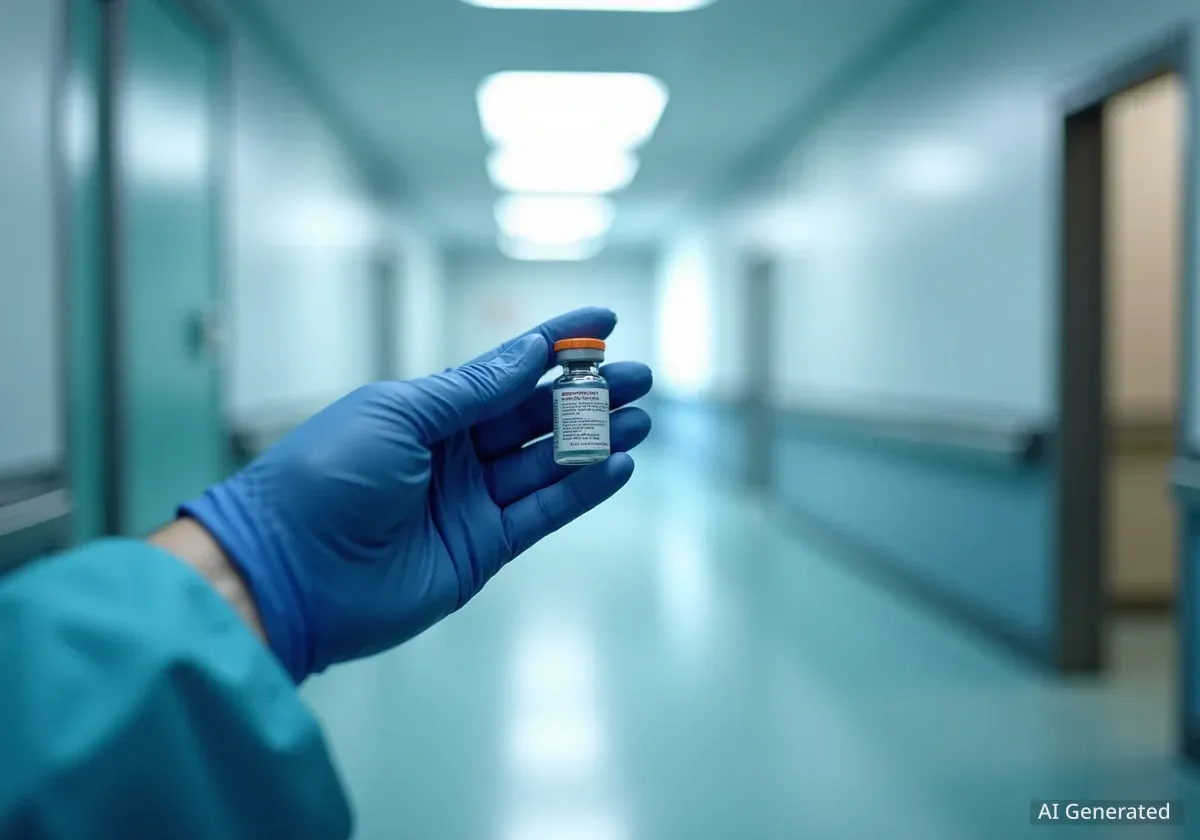A Wirral-based cancer charity has received a significant financial contribution to advance its research into secondary breast cancer. The Grace Trust has donated £39,037 to the Clatterbridge Cancer Charity to support a project focused on improving the detection and treatment of breast cancer that has spread to the brain.
Key Takeaways
- Major Donation: The Grace Trust has donated £39,037 to the Clatterbridge Cancer Charity.
- Research Focus: The funds will support research into secondary breast cancer, particularly cases that spread to the brain (brain metastases).
- Project Goals: The research aims to develop methods for earlier detection and identify more effective treatments for this advanced stage of the disease.
- Local Impact: The Clatterbridge Cancer Centre serves approximately 39,000 patients annually from Merseyside, Cheshire, and surrounding regions.
A Significant Investment in Cancer Research
The Clatterbridge Cancer Charity, which supports patients and research at The Clatterbridge Cancer Centre, has formally accepted the donation. The funds are designated for a specific research initiative that seeks to address one of the most challenging aspects of breast cancer treatment.
The contribution comes from The Grace Trust, an organisation committed to funding projects that provide practical support and bring hope to those in need. Charles Hathorn, a trustee of The Grace Trust, presented the cheque and explained the motivation behind the donation.
"We were absolutely delighted to be able to support such important research that has the potential to save lives. We know that secondary breast cancer affects thousands of women and their families across the UK, bringing enormous challenges at an already difficult time."
Hathorn emphasised the trust's mission to create tangible positive change. He added, "At The Grace Trust, we are committed to funding projects that make a real difference, and we hope this donation will help bring hope and comfort to those facing this terrible disease."
The Challenge of Secondary Breast Cancer
Secondary breast cancer, also known as metastatic or advanced breast cancer, occurs when cancer cells from the original tumour in the breast travel to other parts of the body. While it can be treated, it is not currently curable, and management focuses on controlling the disease and maintaining quality of life.
Understanding Secondary Breast Cancer
Primary breast cancer is confined to the breast and nearby lymph nodes. Secondary breast cancer develops when cancer cells break away and form new tumours elsewhere, such as the bones, liver, lungs, or brain. This progression significantly complicates treatment.
According to data from The Clatterbridge Cancer Centre, approximately 30 percent of individuals initially diagnosed with early-stage breast cancer will later develop a secondary diagnosis. This statistic highlights the urgent need for research into why and how the disease spreads.
The Clatterbridge Cancer Centre is a major regional facility, treating around 39,000 patients each year from Merseyside, Cheshire, the Isle of Man, and beyond. Of these patients, about 8,000 are being treated for breast cancer, making it a key area of focus for the centre's clinical and research teams.
Focusing on Brain Metastases
A growing concern for oncologists is the spread of breast cancer to the brain, known as brain metastases. This specific type of secondary cancer presents unique and severe challenges for both patients and medical professionals.
Detection and Symptoms
Currently, brain metastases are often detected only after a patient begins to experience neurological symptoms. These can include severe headaches, seizures, or weakness in the limbs. By the time these signs appear, the cancer may be more advanced and harder to treat effectively.
Key Statistics on Breast Cancer at Clatterbridge
- Total Patients Annually: ~39,000
- Breast Cancer Patients Annually: ~8,000
- Rate of Secondary Cancer: ~30% of early-stage patients
The research project funded by The Grace Trust will explore innovative methods for earlier detection. One promising area of investigation involves the analysis of spinal fluid to identify cancer cells or biomarkers before physical symptoms emerge. Early detection could allow for more timely and potentially more successful interventions.
Improving Treatment Options
In addition to early detection, the research will also aim to identify more effective treatments for brain metastases. The blood-brain barrier, a protective membrane that shields the brain from harmful substances, can also prevent many standard cancer drugs from reaching tumours in the brain. This makes treatment particularly difficult.
The project will investigate new therapeutic approaches that can either bypass this barrier or are specifically designed to be effective against cancer cells within the brain's unique environment.
Hope for Patients and Families
The donation has been welcomed by the Clatterbridge Cancer Charity, which relies on public and trust funding to support its work. Elspeth Wilson, the charity's trusts and foundations fundraiser, expressed her gratitude for the significant contribution.
"On behalf of Clatterbridge Cancer Charity, we're very grateful for the incredibly generous donation of £39,037.03 from The Grace Trust towards ground-breaking research to improve the detection and treatment of secondary breast cancer."
Wilson highlighted the potential real-world impact of the research on the lives of thousands of patients. She stated that the project could lead to better outcomes and an improved quality of life for those diagnosed with this devastating condition.
"This research has the potential to significantly reduce the impact of secondary breast cancer on patients and their families, offering hope for better outcomes and improved quality of life," she explained. "Support from The Grace Trust and other amazing people in our region will help to reduce the impact of this devastating diagnosis on patients and their families and offer them the hope and healing that they need."





